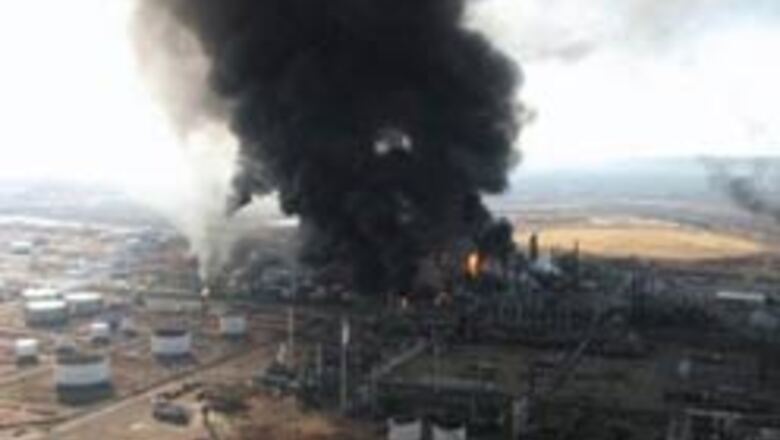
views
Vienna: Oil, heating oil and gasoline prices spiked on Tuesday as investors eyed the possibility that Organization of Petroleum Exporting Countries (OPEC) may cut production just ahead of the second quarter, when gasoline demand in the Northern Hemisphere usually becomes the central focus of the market.
An explosion at a 70,000-barrel-a-day refinery in Texas may have also boosted prices, but the primary worry is that the OPEC may reduce output next month to support prices in a $85 to $100 a barrel range, said Tetsu Emori, commodity markets fund manager at ASTMAX Futures Co. in Tokyo.
OPEC may do so just ahead of the second quarter when oil prices have started an annual run-up the past five years as people looked ahead to "gasoline demand coming in the spring," Emori said.
The explosion on Monday at the Alon USA refinery at Big Spring, Texas, injured four workers, with one employee hospitalised for burns.
All workers were accounted for about an hour after the explosion, according to Blake Lewis, a spokesman for Alon.
Alon USA Vice President David Foster said he expected the refinery to be off-line for weeks.
Light, sweet crude for March delivery gained $1.96 from Friday's floor close to $97.46 a barrel in electronic trading on the New York Mercantile Exchange by midday in Europe.
The Nymex crude contract for March rose 4 cents Friday to settle at $95.50 a barrel.
Heating oil and gasoline futures jumped more than seven cents to $2.7170 a gallon and $2.5638 a gallon (3.8 liters.) Natural gas futures rose more than 20 cents to $8.862 per 1,000 cubic feet.
The price is now about $9 a barrel more than the closing price in the US on February 6.
"Energy prices are strong," said the Schork Report, edited by energy analyst Stephen Schork.
"As we look forward to this abridged (trading) week ... the path to $100 ... appears open."
Trading volumes have been thin so far this week due to the President's Day holiday in the United States — where the floor session was closed on Monday — and the start in London of International Petroleum Week, an oil industry conference.
The US Energy Department, the International Energy Agency and OPEC have all cut demand forecasts for this year.
Also, a seasonal slump occurs in the first quarter of every year, and "people are worrying about a US recession ... giving some effect to oil demand in the US," said Emori.
OPEC wants "take it as a more supportive factor to make further production cuts, even though the price is going higher," he said.
"They don't care about the supply-demand balance, what they want to do is hold the price level."
Several reports in recent days have suggested that global economic conditions may not be deteriorating as quickly as feared.
The US Federal Reserve said Friday that industrial production in the world's largest economy rose last month in line with expectations.
Traders also were keeping an eye on developments in Nigeria, where militants responsible for attacks on the country's oil infrastructure asked US President George W Bush to mediate in the long-lasting crisis.
The Movement for the Emancipation of the Niger Delta, or MEND, began intensifying its attacks two years ago, kidnapping foreign workers and sabotaging oil infrastructure.
As a result of the conflict, Nigeria, Africa's biggest producer and a major supplier of crude to America, has seen its output fall by about 20 percent, helping send oil prices higher.
OPEC is scheduled to meet March 5 in Vienna to review its production policy.
In London on Tuesday, Brent crude for April delivery rose $1.70 cents to $96.61 a barrel on the ICE Futures exchange.
















Comments
0 comment